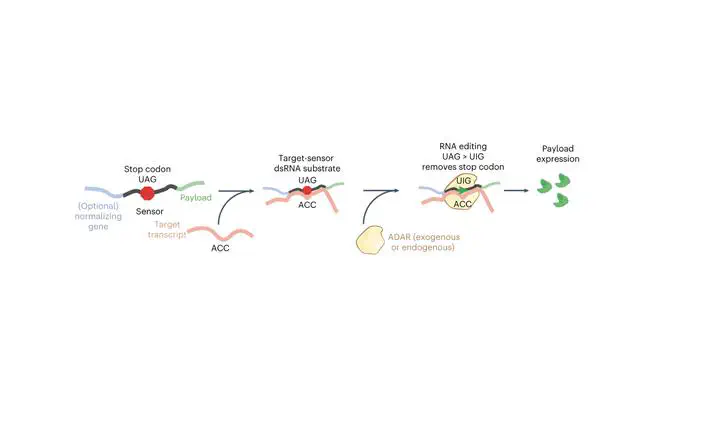Programmable eukaryotic protein synthesis with RNA sensors by harnessing ADAR
 Image credit: Unsplash
Image credit: UnsplashAbstract
Programmable approaches to sense and respond to the presence of specific RNAs in biological systems have broad applications in research, diagnostics, and therapeutics. Here we engineer a programmable RNA-sensing technology, reprogrammable ADAR sensors (RADARS), which harnesses RNA editing by adenosine deaminases acting on RNA (ADAR) to gate translation of a cargo protein by the presence of endogenous RNA transcripts. Introduction of a stop codon in a guide upstream of the cargo makes translation contingent on binding of an endogenous transcript to the guide, leading to ADAR editing of the stop codon and allowing translational readthrough. Through systematic sensor engineering, we achieve 277 fold improvement in sensor activation and engineer RADARS with diverse cargo proteins, including luciferases, fluorescent proteins, recombinases, and caspases, enabling detection sensitivity on endogenous transcripts expressed at levels as low as 13 transcripts per million. We show that RADARS are functional as either expressed DNA or synthetic mRNA and with either exogenous or endogenous ADAR. We apply RADARS in multiple contexts, including tracking transcriptional states, RNA-sensing-induced cell death, cell-type identification, and control of synthetic mRNA translation.